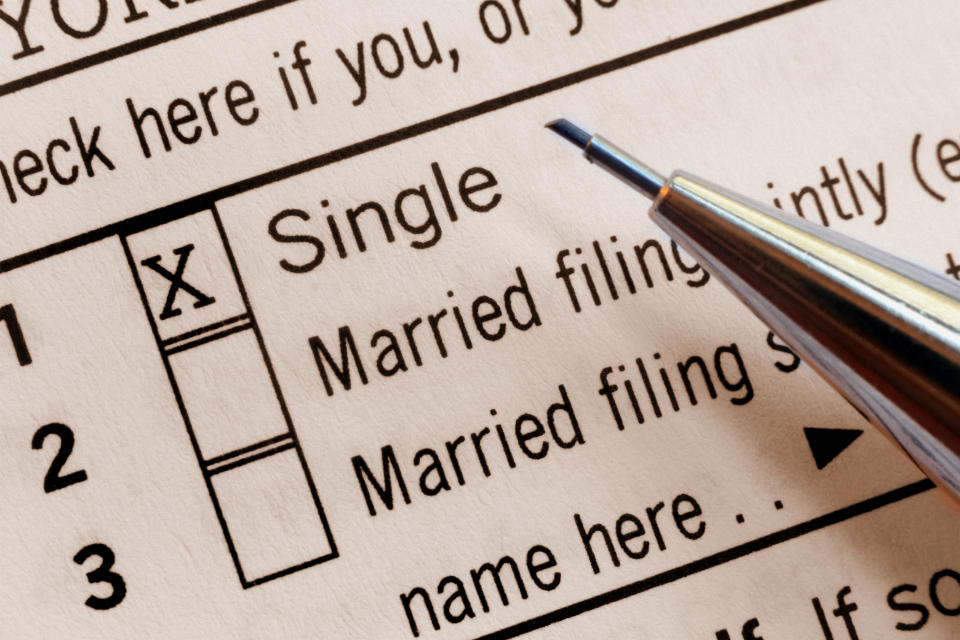Fewer people are getting married because there’s a shortage of economically stable single men, says study
Marriage isn’t as popular as it once was. In fact, the marriage rate in the U.S. is the lowest it’s been in at least 150 years, reports PBS.
A new study, published in the Journal of Marriage and Family, may have one explanation as to why: There aren’t enough “economically attractive” men — ones with a good income and a stable job — for single women to marry.
In the study, researchers examined couples in heterosexual marriages from 2008 to 2012 and 2013 to 2017, compiling character profiles (education and income levels) of the husbands. When they analyzed the pool of available men for these economically attractive traits that demographically-similar single women might look for, there was a shortage of potential matches.

The researchers hypothesized that potential husbands for the single women had an average income nearly 60 percent higher than the actual pool of available men. They were also 30 percent more likely to be employed and 19 percent more likely to have a college degree compared to current bachelors.
In other words, the researchers say there’s a shortage of available men who are economically attractive, which they define as “partners with either a bachelor’s degree or incomes of more than $40,000 a year.”
While the focus on finances might sound shallow — or at least, not very romantic — lead author, Daniel T. Lichter, PhD, a professor at Cornell University, tells Yahoo Lifestyle that money matters in marriage.
“Economic stability is a key to a stable family life — to getting married, staying married, and marrying well,” he says. “Physical attractiveness may provide an initial filter that draws our attention, but economic considerations and shared values matter much more in the long term. A good job attracts and retains suitable marital partners. And this is true for both men and women.”
Obviously, not every woman (or man) wants to get married. And even those who do want to put a ring on it are doing so later in life, according to U.S. Census Bureau data. “Most young people today no longer marry as teens or when they are in college,” says Lichter. “In the past, high schools and colleges brought similar young people together in a common space where they would meet, form romantic attachments, and perhaps marry. Delayed marriage now means that young people today must find compatible mates elsewhere — in the work place or in the neighborhood at the local gym, bar, or club.”
For women, finding a partner with similar educational backgrounds may also get harder. Women are more well-educated than ever before — it’s estimated that 2019 will be the first year that women make up the majority of the college-educated labor force, according to a Pew Research Center analysis.
And, while there is still a gender pay gap, as more women become financially independent, that may help shift things on the marriage front. Lichter says that finding potential male partners who are economically secure may not matter as much when women are the financially-secure ones. “It seems that this is already becoming more common,” Lichter says. “In the past, it was the case that young women usually ‘married up’ in education or in socioeconomic status. But this is no longer true. Increasingly, young women are marrying men with less education than themselves.”
He continues: “This is due in part to a shortage of similarly-educated men, but women today also are looking for more than a good provider, but for an egalitarian partner to share their lives together.”
Read more from Yahoo Lifestyle:
Women actually earn 49 cents for every man's dollar — why the gender pay gap is worse than it seems
The best ways to manage money — and avoid credit card debt — while in college
Follow us on Instagram, Facebook and Twitter for nonstop inspiration delivered fresh to your feed, every day.

